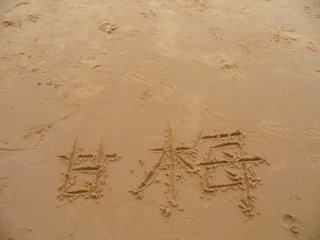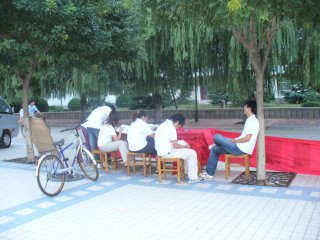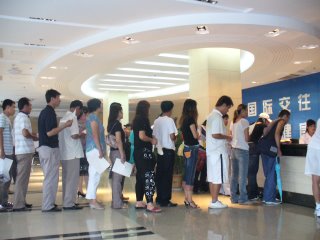
When the Chinese are in authority, they are not required to give a logical reason for what they request, or any reason at all.
The international office asked me to give them my passport on Thursday, so they could apply for my work visa on Monday and perhaps return it to me by Wednesday. Why did they need it on Thursday? Just so they'd all be in one place. To me this seemed unreasonable. I agreed to give it them on Monday when they actually needed it.
I may not see the books from which I will be teaching until tomorrow. The official who has the key to the book room is not in. There are, I am told, no duplicate copies of the key. I shook my head in disbelief, and the graduate assistant who told me this began to laugh.
Now, everything I have read suggests that in instances like these, you simply acquiesce to the demands of the host culture. But Western friends who have been here a long time counsel otherwise. Barry Jowett and Carl Mather say it makes more sense to question and even fuss about practices that don't seem reasonable.
Confucius (see above), China's first sage, counseled obedience to superiors. But he also emphasized justice and reasonableness by those in authority.















